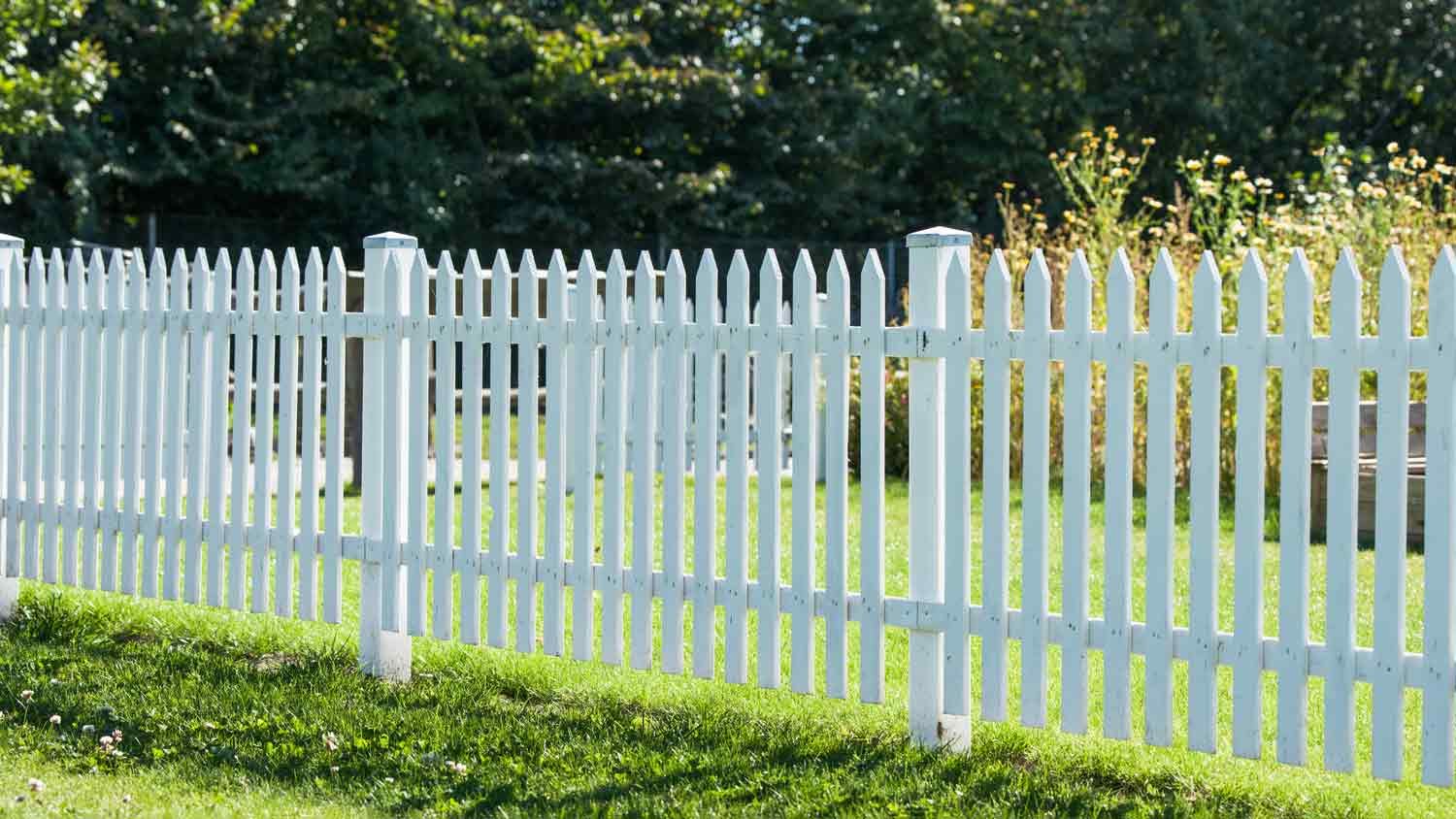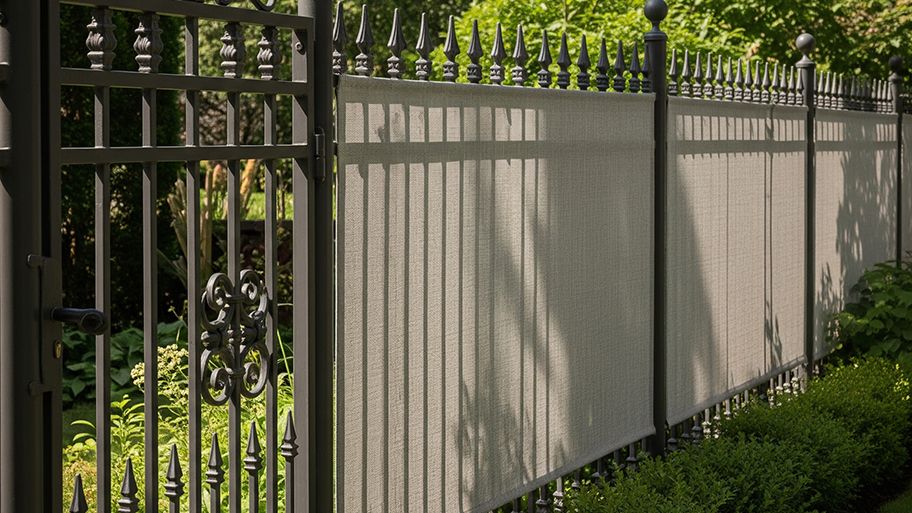How much a wood fence costs depends on the material, add-ons, and more. Read this guide to learn how each cost factor impacts the price of a wood fence.
What Is a No Dig Fence?
Add curb appeal without breaking a sweat


No dig fences often use stakes as footing, saving you the hassle of digging and pouring cement.
No dig fence panels generally cost from $50 up to $300.
You can install no dig fencing yourself within a day; DIY kits make the process even simpler.
Most no dig fences are less sturdy than traditional fencing and are often used for decorative instead of security purposes.
Fences are a beautiful and practical addition to your property. However, installing traditional fencing yourself can be time consuming and labor-intensive, while hiring a professional for the job can be a hefty investment. Fortunately, no dig fencing is here to save the day. What is a no dig fence? Easy to install and much more affordable, this alternative to traditional fencing is typically secured with stakes—no excavating or cement required.
What Is a No Dig Fence?
As the name suggests, a no dig fence requires no digging, meaning you don’t have to worry about pouring concrete to fasten the fence posts and waiting for it to dry before installing the remaining fencing. Most no dig fences come with stakes, and all you need to do is drive them into the ground with a hammer or mallet before attaching the fence panels.
No dig fence panels come in various designs and materials, varying from the classic white picket fence to ornamental metal fencing.
Pros and Cons of a No Dig Fence

Traditional fencing requires you to dig holes in the ground and fill them with concrete to secure the fence posts before installing any panels. With a no dig fence, you get to skip those steps—but there are some tradeoffs.
Advantages of a No Dig Fence
No dig fences come with the following core advantages:
Easy installation: You can install a no dig fence in less than a day. Simply insert the stakes into the ground, fasten the posts, and attach the panels.
Affordable: Compared to traditional fencing, no dig fences are far more affordable. No dig fencing costs from $50 to $300 per panel on average, with most models under $100. Home improvement stores sell individual panels as well as kits with all the components you’ll need.
Versatile: No dig fences can be taken down and put back up as needed. You can also mix and match different styles easily.
Less intrusive on landscape: No dig fencing is less intrusive to existing landscapes, making them a good choice for delicate flower beds and other carefully crafted outdoor features. They can also be installed where deep digging isn’t an option due to utility lines.
Disadvantages of a No Dig Fence
A no dig fence does have some downsides you’ll need to consider before deciding if it’s right for your project.
Lack of security: Most no dig fences are not strong enough to withstand forced entry due to their lack of concrete footings. Someone may be able to shake and break the fence fairly easily.
Less weather-proof: For similar reasons, no dig fencing may not be the most suitable choice for those living in areas with severe wind and weather.
Height restrictions: No dig fences are typically no more than 4 feet high. If you’re looking to build a full privacy fence, you’ll have to go with traditional fencing.
Flat ground only: No dig fencing tends to work best on level ground. If your home has significant inclines and slopes, no dig fencing may not be appropriate. If you aren’t sure what type of fencing is best for your property, consult a local fence contractor for advice.
How Much Do No Dig Fences Cost?
No dig fences can cost anywhere from $50 to $300 per panel, depending on the design, materials, and size. No dig fences are often made with metal, aluminum, wood, or vinyl. Vinyl fencing would be the most affordable option. Strengthened aluminum no dig fencing can be more costly, but it’s also more durable. Most DIY kits come with stakes, poles, and a fixed number or length of panels.
To put these costs in perspective, traditional fence installation costs an average of $1,856 to $4,758.
The homeowners guide to fencing services
From average costs to expert advice, get all the answers you need to get your job done.
- •

Chain-link fences are among the most affordable options available. Use this chain link fence cost guide to see what your fence installation will total.
 •
•How much a vinyl fence costs depends on its length, height, style, and whether you pay for labor. Learn more about the true cost of vinyl fencing.

Looking for a little more seclusion in your yard? No problem. Learn how to cover a metal gate for privacy with a few simple tricks and tips.

Discover gate hinge types for every need—T hinges, barrel hinges, butt hinges, and more—and learn how to choose the best hinge for your project.

If you assumed your hilly yard disqualified you from building a fence, think again. Here’s how to build a fence on a slope, including two ways to do so.

